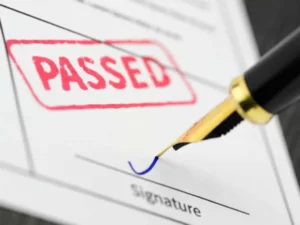You’ve been accused of something you didn’t do. To prove your innocence, you agree to take a polygraph test, confident it will show you’re telling the truth. But the results come back inconclusive or even deceptive. How could this happen when you were completely honest?
Unfortunately, polygraph testing is not 100% foolproof. Many physiological and psychological factors can interfere with results and cause even honest people to fail. By understanding some of the reasons polygraphs go wrong, you can better prepare yourself and even stand a better chance of passing if you find yourself in this unjust situation.
How Polygraphs Work

To understand why polygraph tests aren’t always accurate, you need to know how they work in the first place. Polygraph machines measure and record certain physiological activities in your body including:
- Blood pressure
- Pulse
- Respiration
- Skin conductivity
The idea is that telling lies causes subtle bodily reactions that can be detected by the sensors. Things like increased heart rate and sweating are considered telltale signs of deception.
The polygraph administrator asks a series of questions, including control questions and relevant questions related to the issue under investigation. Your physical reactions are compared for each one. Reacting more strongly to relevant questions is seen as a sign of lying.
Flaws in the Core Assumptions
There are two flaws with these core assumptions that polygraphs rely on:
1. Lying does not consistently produce unique bodily reactions.
While it’s true that deception can cause physiological changes, they don’t happen for everyone or in all situations. Some people show strong reactions from stress even when telling the truth.
2. Reacting strongly to relevant questions does not always indicate lying.
Many honest people show greater physical reactions to questions that are personally meaningful, even if they are answering truthfully. This will wrongly make them look deceptive on a polygraph test.
These flaws could mean polygraphs frequently flag truthful people as deceptive (false positives). The reverse can also happen where liars pass (false negatives).
Let’s look closer at the many reasons you may fail a polygraph test even if you are innocent and completely honest.
Physiological Factors

Your unique physiology and medical conditions can interfere with polygraph results in ways that have nothing to do with lying. Here are some examples:
Blood pressure abnormalities
If you have naturally high blood pressure, you may show elevated readings throughout the entire test, including the control questions. This will make your reactions to all questions appear heightened, making you look deceptive.
Respiratory issues
Medical conditions like asthma can alter your breathing patterns. Shallow breathing from anxiety can also be misinterpreted as deception related to the relevant questions.
Sweat gland dysfunction
Sensors measure sweat gland activity as an indicator of stress. But some people have overactive sweat glands unrelated to lying. On the other hand, those with underactive sweat glands may fail to show expected physical signs when they do lie.
Heart abnormalities
An irregular heartbeat pattern like atrial fibrillation can cause unusual results on the test. Just having a naturally high pulse rate can also be misread.
Medications
Many drugs impact results by altering things like heart rate and blood pressure. Medications that have this effect include blood pressure drugs, heart medications, and even common antidepressants.
Underlying medical disorders
Conditions like diabetes, obesity, thyroid disorders, and autoimmune diseases can also affect bodily functions in ways that interfere with normal test results. Chronic anxiety unrelated to the test itself also influences outcomes.
The bottom line? An atypical physiology – whether it’s your normal or related to medical issues – can make you look deceptive even when you’re not.
Psychological Factors

In addition to physiology, mental and emotional states impact polygraph results. Things like stress, fear, and anxiety feel the same in the body whether you’re lying or telling the truth. Here are some psychological reasons an honest person may fail.
Situational stress
Simply being accused of something you didn’t do is intensely stressful for most people. Add to that the intimidating testing environment and the pressure to “pass.” These situational stressors mimic the body’s reaction to lying.
Performance anxiety
The fear of failure alone can cause strong physical reactions that compare to those associated with deception. Many people experience extreme performance anxiety related to tests of all kinds.
Overthinking questions
You’re likely to show more pronounced reactions when your mind races about a question, even while answering truthfully. This is especially true for vague, confusing, or repetitive questions.
Introverted personality
Introverts tend to feel less comfortable than extroverts in situations that demand high levels of social interaction. This can translate to increased anxiety and poorer test performance.
Testing environment
Distracting surroundings like an uncomfortable room temperature, glaring lights, or strange noises can all increase nerves. An unfriendly or skeptical demeanor from the examiner also raises anxiety.
Mental health issues
Disorders like depression, anxiety, PTSD, OCD, and ADD can all affect physiological responses. Emotional detachment from trauma can also influence results.
False memories
Thinking you’re lying when you’re not alters responses. For example, fuzzy memories about past events may leave you uncertain and affect reactions.
As you can see, state of mind has as much impact on polygraph results as physiological factors. Even if you know you’re telling the truth, psychology can unwittingly make you look deceptive.
Procedural Problems

In addition to the test-taker, the polygraph procedure itself is can be a source of inaccurate results, even when administered properly.
Imprecise measurements
Sensors may misread levels, or normal fluctuations may be misinterpreted as significant. Small movements like shifting in your seat can also impact results.
Poor question wording
Vague, complex, or confusing questions can elicit greater reactions, as can repetition of the same questions multiple times. Even straightforward questions can be misinterpreted.
Inadequate control questions
If control questions don’t elicit strong enough reactions, your responses to relevant questions may appear disproportionate in comparison, flagging you as deceptive.
Unrealistic setting
A lab-like, impersonal testing environment causes anxiety that hampers real outcomes for those being truthful.
Incompetent examiners
Many administrators have minimal training and simply follow procedural checklists. Without keen observation skills and psychological understanding, they may misread reactions.
Defective equipment
Like with any technology, polygraph machines can malfunction. Outdated equipment may be improperly calibrated or maintained which skews results.
While best practices exist, human error and unreliable technology means even the most honest responses can be misclassified as lies.
Strategies to Pass an Unjust Polygraph Test

If faced with a polygraph test and don’t deserve to fail, all hope is not lost. Being aware of the many potential pitfalls can help you mentally prepare to get an accurate passing result. Here are some expert tips:
- Get a good night’s sleep – Restfulness reduces anxiety that can affect results.
- Avoid medications and stimulants – Caffeine, for example, can accelerate heart rate and blood pressure.
- Listen carefully – Don’t let ambiguous or confusing questions rattle you. Ask for clarification.
- Answer simply – Don’t overthink responses as this can alter physiological signs.
- Stay still – Excess fidgeting can interfere with sweat and respiration measurements.
- Breathe normally – Use deep belly breaths to manage nerves and avoid breathing irregularities.
- Visualize success – Picture yourself calmly passing the polygraph with truthful answers.
- Be honest – Lying will only harm your case if you are innocent. Answer truthfully and confidently.
While polygraphs are not guaranteed to detect lies, following these tips can help avoid many pitfalls that trap truthful people. Relax, respond genuinely, and leave the interpretation to the examiner.
Future of “Lie Detector” Technology
While polygraphs remain controversial, new technologies are emerging that may one day be more accurate.
Possibilities include:
- Brain wave analysis – This uses electroencephalography (EEG) to detect deception-related patterns in the brain.
- MRI scans – Functional magnetic resonance imaging (fMRI) reveals subtle activity changes in the brain when lying.
- Voice stress analysis – Vocal patterns and fluctuations may indicate lying, especially when questions are repeated.
- Microexpressions – Brief facial expressions reflecting concealed emotions are measured using algorithms.
- Body temperature – Infrared thermal imaging tracks imperceptible increases related to lying.
However, most alternatives remain in early development and have not yet proven more reliable. Until a definitively accurate method emerges, the best option is to arm yourself with knowledge about why polygraph testing goes wrong, along with fail-safes to ensure truth prevails.
Final Words

Because of the many physiological and psychological factors that influence results, you may fail even when being completely truthful.
If you find yourself in a situation where you must take a polygraph test, avoid panic. Understand the techniques used, limitations, and sources of error. An inconclusive or false result does not necessarily mean the truth can’t emerge eventually. Going in with knowledge of the pitfalls gives you the power to counter them to the best of your ability. While technology improves, maintaining confidence in your own honesty is the ultimate key to success.

